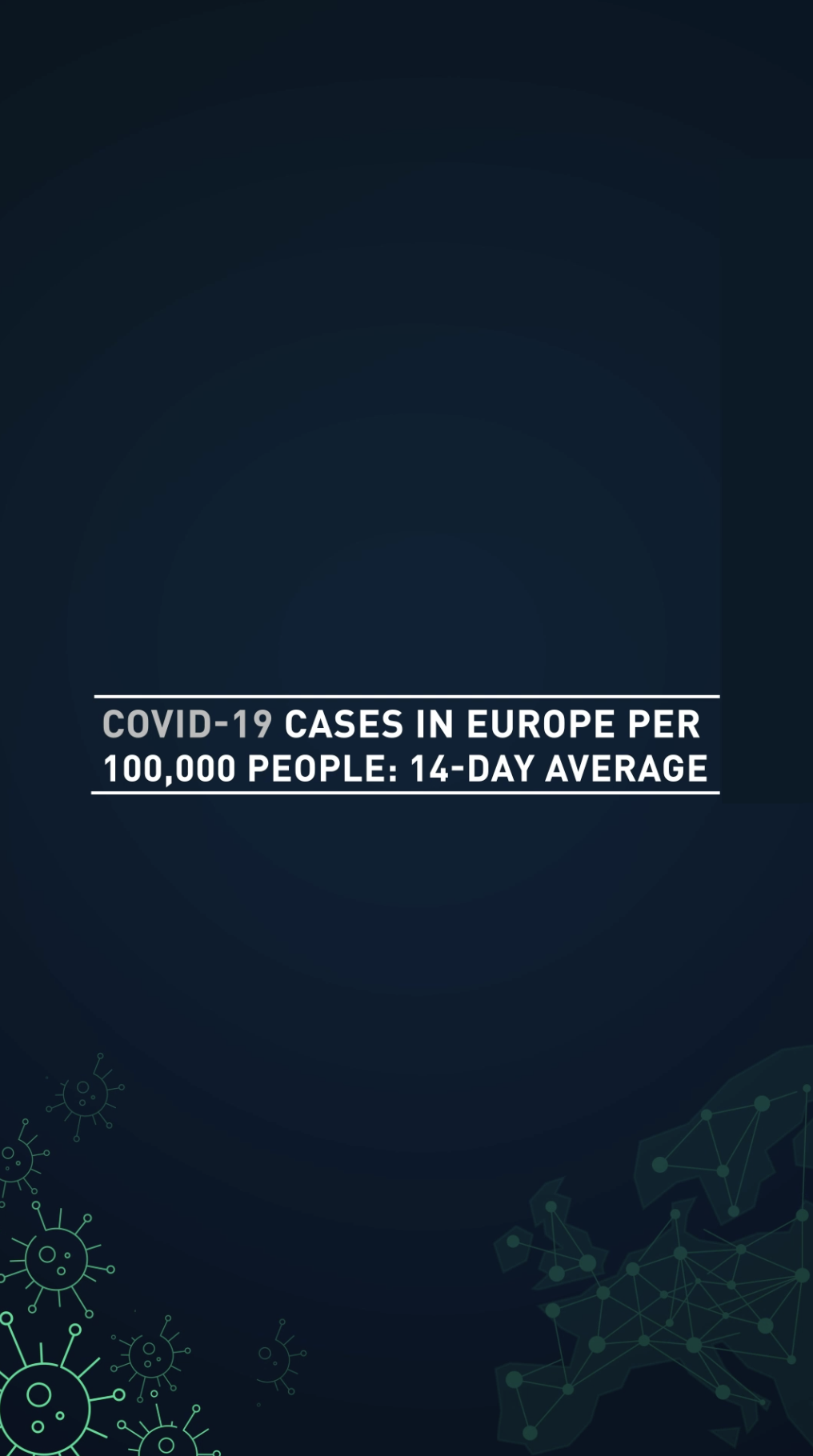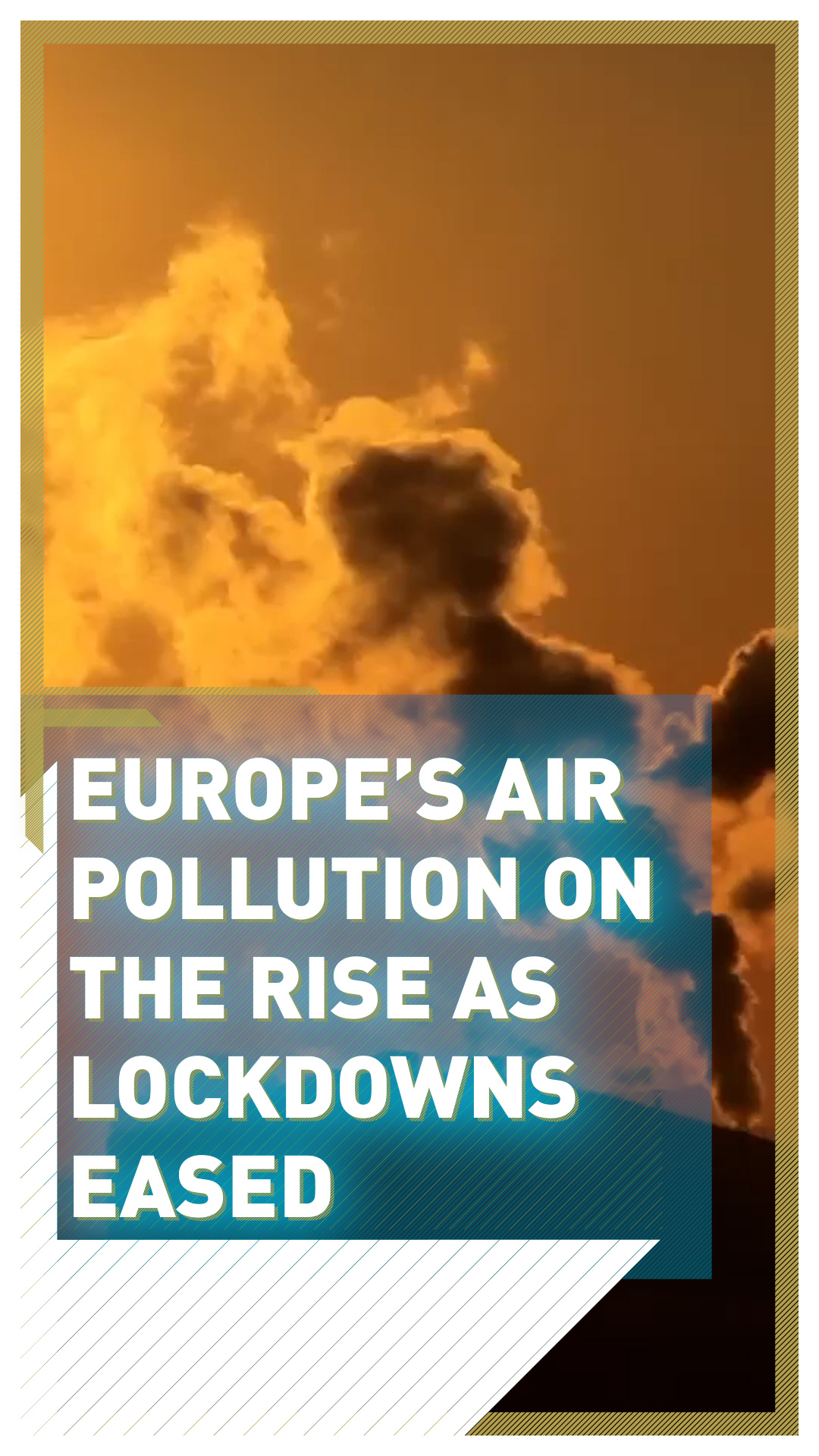TOP HEADLINES
· A European Union leaders summit, scheduled to start on Thursday, has been postponed after European Council President Charles Michel began a period of self-isolation due to contact with an infected security guard.
· Deaths from COVID-19 in Europe increased by 27 percent week on week as the World Health Organization reported the global infection rate was at its highest level.
· Madrid authorities have urged the government to hire foreign doctors after a surge in cases across the city.
· Spain's government has agreed with labor unions that employers must cover their workers' expenses after the pandemic forced many people across the country to work from home.
· Belgium has announced that its citizens will no longer have to wear face masks outdoors. They have also reduced the time people have to self-isolate from two weeks to seven days from 1 October.
· UK Prime Minister Boris Johnson has called for citizens to come together for "collective health" in a televised address to the nation shortly after announcing new restrictions that could last six months.
· French pharmaceutical company Sanofi and Britain's GlaxoSmithKline have pledged up to 72 million doses of their new vaccine to the Canadian government after they have both received regulatory approval.
· Global airlines have called for departure tests for all international passengers to replace the current quarantine regulations. German airline Lufthansa has already announced plans to make rapid tests available to its passengers from October.
· The world's largest planemaker Airbus, is considering making more job cuts after CEO Guillaume Faury warned voluntary redundancies might not be enough.
· Tokyo's Olympic Games organisers have released draft measures for next year's delayed games that will require tests of foreign athletes upon arrival into Japan but may not require a two-week quarantine period.

European Council President Charles Michel has been forced to self-isolate after coming into contact with an infected security guard. /AFP
European Council President Charles Michel has been forced to self-isolate after coming into contact with an infected security guard. /AFP
ACROSS EUROPE
Mia Alberti in Frankfurt
The controversial idea of creating a COVID-19 immunity certificate has been rejected by the German Ethics Council, an independent council that prepares recommendations for political and legislative action.
"In view of the many uncertainties that still exist regarding immunity against the novel coronavirus, the German Ethics Council does not recommend the use of immunity certificates at this time," it said in its recommendation to the Minister of Health.
The Council adds that half of the group rejects the use of state-controlled immunity certificates even when questions about immunity are resolved, citing concerns for social unrest and inequalities.
Germany's Finance Minister presented the 2021 draft budget, which included 96.2 billion euros ($112.6 billion) of expected debt as the country added to the record-high borrowing of some 218 billion euros earlier this year.
Toni Waterman in Brussels
Belgium's National Security Council meets today to discuss containment measures after a spike in COVID-19 infections across the country. The problem is, the public is already jaded. So, today's exercise will be more about rearranging restrictions to rally citizens into a renewed sense of compliance.
There is likely to be some flexibility added to social bubbles, which are currently limited to five. Social gatherings may also get a reprieve if a framework can be developed to supervise such groups and ensure safety measures are followed.
There's also talk of shortening the mandatory quarantine period of 14-days. Travel bans to red zones could also be replaced with strict advice against traveling to high infection areas.
00:20

Isobel Ewing in Budapest
Research conducted by Budapest's Semmelweis University has found the surface of the virus is extremely flexible and has the ability to self-heal, which they say could contribute to its high infection rate.
Researchers from the National Center for Public Health have been studying the structure of the virus and found that the corona-shaped spikes covering the surface contain rubber-like properties and are not damaged by physical impact, making it one of the most resilient biological organisms known to humanity.
According to the Dean of the Faculty of Medicine Miklós Kellermayer, the mechanical and self-healing properties of the virus may enable it to adapt to a wide range of environmental conditions.
According to the university, the research is unique because previous publications were based on inactive, chemically treated or frozen samples, while the Hungarian research group studied active and infectious coronavirus.

Global airlines have called for mandatory airport tests before international flights to replace the current quarantine regulations. /AFP
Global airlines have called for mandatory airport tests before international flights to replace the current quarantine regulations. /AFP
Andrew Wilson in London
Pressure shifts on to the Chancellor Rishi Sunak today after the Prime Minister's announcement that stringent anti-coronavirus measures will be introduced again with many experts already saying privately that the steps won't be enough.
Sunak is reported to be considering German-style wage subsidies as the UK furlough scheme approaches the final weeks.
The Federation of Small Businesses and other experts have already expressed concern about the dangers of withdrawing government support for the economy as currently planned.
Ross Cullen in Paris
France continues to battle a surge in the number of people infected with the coronavirus, prompting hospitals in the Lyon region to start their 'Plan Blanc' on Tuesday.
The so-called 'White Plan' makes it possible, in particular, to accommodate more patients in intensive care. Also, the French Caribbean island of Guadeloupe has experienced a weekly record number of coronavirus-related deaths.
Masks are obligatory from 7 a.m.-2 a.m. in the port city of Le Havre. Forty-seven new cases of COVID-19 have been confirmed among medicine, dentistry and pharmacy students at the University of Rennes, in Brittany while 252 students and a staff member from the central school in Lyon have tested positive for the coronavirus.
Stefan de Vries in Amsterdam
To cope with the severe shortage in COVID-19 test capacity, The Netherlands will send samples to Dubai for analysis. A special airlift has already been set up to get the cotton swabs on the six hours, 5,000 kilometers journey from Schiphol Airport to the city-state in the United Arab Emirates.
Initially, it will focus on several thousand tests taken daily in the Utrecht region. The Dubai airbridge comes on top of contracts with commercial labs in Germany and Belgium.
Meanwhile, infection rates are increasing day by day, and the situation is worrying. The Netherlands is on the eve of a second wave. After the government announced additional measures for six problem regions on Friday, there will probably be eight more this week, said Prime Minister Mark Rutte. Over the last 24 hours, there were 2,245 new infections, a record.
01:27

FROM OUR GLOBAL COLLEAGUES
CGTN China: Chinese mainland reports 10 new COVID-19 cases, all from overseas
CGTN America: U.S. sets 16 October deadline for states to submit vaccine plans
CGTN Africa: COVID-19 causes multiple shocks to Zimbabwe's businesses - World bank
Sign up here to get the COVID-19 Europe bulletin sent directly to your inbox
CGTN Europe has been providing in-depth coverage of the novel coronavirus story as it has unfolded. Here you can read the essential information about the crisis.